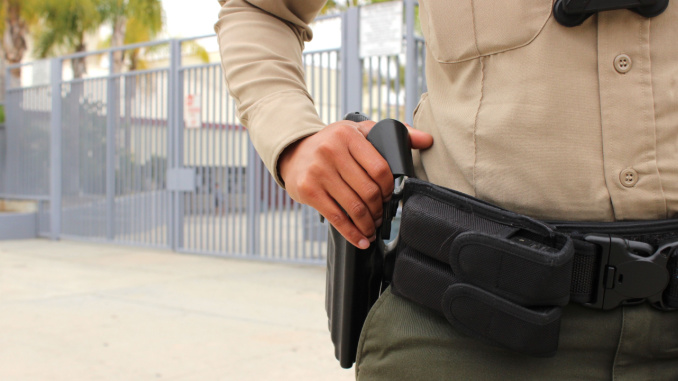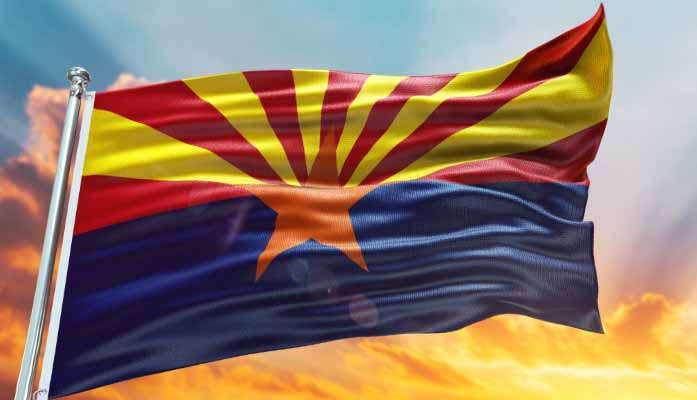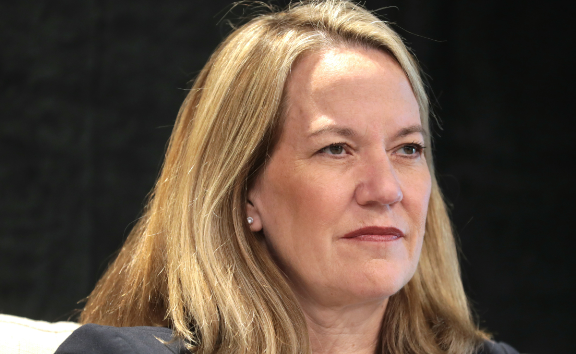
by Matthew Holloway | Sep 8, 2025 | Education, News
By Matthew Holloway |
With the tragic murder of a Maryvale High School student and the brutal attack against the Annunciation Catholic School in Minneapolis, MN, still fresh in public memory, State Superintendent of Public Instruction Tom Horne submitted a legislative budget request for $180 million to continue and expand state funding to put more armed officers on campuses throughout Arizona.
Existing funding for school safety, by initial appropriation and carryover, totals $128 million. Federal funding also provides an additional $20 million. According to the Arizona Department of Education, both are scheduled to expire in 2026. To address this, Horne has reportedly submitted the request for $180 million, which, if approved, “would ensure the current level of funding will continue and the added $32 million will allow for expanding the program for more officers and training.”
In a statement released Thursday, Horne said, “Over the past several weeks, our nation has witnessed terrible school tragedies. This problem is not going away, and we need to address it aggressively. Therefore, I am now making a budget request of the legislature to appropriate at least $180 million to make sure we have no gap in providing funding for armed officers on campuses. This request adds dollars to hire and train officers for more schools statewide to protect students, educators, and classified staff.”
Horne referred back to the successful intervention of a heroic Tucson Police Officer William Bonanno, who thwarted an attempted attack on Legacy Traditional School-East Tucson in January.
“The value of having armed officers on campuses is beyond dispute. One of the best examples occurred earlier this year when a heroic Tucson police officer arrested an armed intruder on a school campus during class hours.
“This criminal was armed with a gun and a knife and told the officer he was there to kill children and make them famous. The officer was on that campus because of funding through the department’s School Safety Program. In fact, he had been hired less than a month earlier using supplemental dollars my department made available. This program works and deserves more funding so it can be expanded. Every parent should want an officer on their child’s campus.”
Maricopa County Schools Superintendent Shelli Boggs issued a concurring statement saying, “I will continue to advocate for school safety programs. This is about ensuring that every student, in every school, in every neighborhood, has the peace of mind that comes from knowing they are safe.”
Maricopa County Sheriff Jerry Sheridan offered his support as well, stating, “As Sheriff of Maricopa County, I strongly support Superintendent Horne’s efforts to fully fund our school safety program to ensure all schools have these resources to protect our kids. There is no greater responsibility for society than to do everything possible to keep children safe, especially in a place of learning and growing. To that end, we currently have dozens of MCSO deputies participating in this program, and additional funding will allow us to expand our services.”
Matthew Holloway is a senior reporter for AZ Free News. Follow him on X for his latest stories, or email tips to Matthew@azfreenews.com.

by Jonathan Eberle | Sep 7, 2025 | News
By Jonathan Eberle |
Arizona Senate Ethics Committee Chairwoman Shawnna Bolick has referred an ethics complaint against Sen. Analise Ortiz to the U.S. Attorney’s Office for review, citing allegations that involve federal law enforcement.
The complaint, filed on September 2nd, accuses Ortiz of interfering with federal immigration enforcement operations in the state. Bolick announced Wednesday that she will formally notify federal prosecutors, saying the allegations fall under their jurisdiction.
“I take this complaint very seriously. Doxing federal ICE agents is not only reckless, it endangers lives and undermines the rule of law,” Bolick said in a statement.
The referral comes as the Senate Ethics Committee has yet to meet in 2025. Bolick said the panel must first adopt its operating rules before it can consider the complaint. Once that step is complete, she added, the committee will review the case “strictly adhering to constitutional standards, as well as applicable state and local laws.”
Bolick distributed the complaint to committee members and Ortiz in a single email “to ensure full transparency,” she said. The issue also connects to Bolick’s legislative record. In 2021, she sponsored HB 2502, a bill signed into law that makes it a Class 1 misdemeanor to electronically distribute someone else’s personal information without their consent, with intent to provoke harassment. At the time, it was the first state-level measure addressing the online misuse of personal data.
Until the U.S. Attorney’s Office completes its review, Bolick said, the Senate committee will hold off on further action.
Jonathan Eberle is a reporter for AZ Free News. You can send him news tips using this link.

by Jonathan Eberle | Sep 7, 2025 | News
By Jonathan Eberle |
A meeting on September 3rd brought together families, law enforcement officials, prosecutors, tribal leaders, and child welfare advocates to address systemic failures in the state’s child welfare system. Recent tragedies involving children in group homes have drawn attention to gaps in oversight, including inconsistent coordination with law enforcement when youth run away from facilities, breakdowns in communication with tribal governments, and limited transparency around licensing actions.
Now, following the stakeholder meeting convened by State Senator Carine Werner (R-LD4), the Arizona Department of Child Safety (DCS) has committed to a series of reforms aimed at strengthening oversight and improving child protection. The announced set of immediate measures from DCS include:
- Clearer notification rules: Drafting changes to require group homes to alert DCS and law enforcement promptly when a child leaves placement.
- Stronger law enforcement partnerships: Sharing group home locations with local police to encourage proactive engagement with staff and residents.
- Critical information packets: Creating standardized “face sheets” for law enforcement to use when a child runs from a facility.
- Renewed tribal engagement: Re-establishing standing meetings with the San Carlos Apache Tribe and extending outreach to other tribal nations.
- Licensing transparency: Developing a process to share licensing actions with tribes that contract with DCS-approved facilities.
Senator Werner emphasized that while the commitments mark progress, long-term accountability remains essential.
“This is a step in the right direction, but it can’t be the last,” Werner said. “Arizona’s children deserve a system that responds quickly, communicates clearly, and puts their safety first. I will keep working with stakeholders and holding DCS accountable until we create a system that best serves families and kids throughout Arizona.”
Werner credited the families, law enforcement agencies, and tribal leaders who participated in the discussion, noting their input directly shaped the reforms. The changes come amid growing scrutiny of Arizona’s child welfare practices, with lawmakers and community advocates pushing for stronger safeguards to protect vulnerable children in state care.
Jonathan Eberle is a reporter for AZ Free News. You can send him news tips using this link.

by Jonathan Eberle | Sep 7, 2025 | Economy, News
By Jonathan Eberle |
Hadrian, a fast-growing advanced manufacturing company specializing in AI-powered production, recently announced it has raised $260 million in fresh capital and will significantly expand its operations in California and Arizona. The move comes as the U.S. defense sector seeks to bolster domestic industrial capacity amid heightened global competition.
The latest funding round, a Series C led by Founders Fund and Lux Capital with additional financing arranged by Morgan Stanley, will finance new facilities, expanded research and development capabilities, and dedicated production for naval defense. In total, Hadrian plans to add nearly five football fields’ worth of manufacturing space.
Company founder and CEO Chris Power said the investment reflects both urgency and opportunity. “America cannot afford to lose another generation of industrial capacity,” Power said. “China is making massive bets on industrial dominance. The United States needs to respond not just with policy, but with production. That’s what Hadrian is here to do.”
At the center of the announcement is Hadrian’s planned Factory 3 (F3) in Mesa. The 270,000-square-foot facility represents a $200 million investment and is expected to create 350 new jobs. The site will serve as both a large-scale production plant and a software hub, with operations slated to begin by January 2026.
Arizona officials welcomed the project as a boost to the state’s growing role in aerospace and defense. Governor Katie Hobbs called Arizona “at the heart of America’s national defense,” while Mesa Mayor Mark Freeman described the investment as proof of the city’s status as a national hub for advanced manufacturing.
“Hadrian’s presence marks a major step forward in strengthening America’s industrial base,” Freeman said.
Alongside the Mesa facility, Hadrian is preparing to establish a new 400,000-square-foot corporate and R&D headquarters to support what it described as the “rapid hiring of thousands” in the coming years.
Hadrian emphasizes speed as a key differentiator. Powered by its proprietary Opus software, the company says it can launch new factories in under six months, a pace far quicker than traditional manufacturing buildouts.
Economic development leaders in Arizona say the company’s decision reinforces the state’s attractiveness to high-tech industries. “Greater Phoenix is known internationally as a hub for innovation, and Hadrian is leveraging the region’s advantages for its transformative F3 in Mesa,” said Chris Camacho, president and CEO of the Greater Phoenix Economic Council.
Hadrian positions itself as a cornerstone of a broader effort to restore America’s manufacturing base, with a particular focus on defense production. Its model blends automation, AI, robotics, and machine learning with traditional process engineering.
By moving critical production onshore, the company argues it can help the U.S. counter reliance on foreign suppliers while creating new jobs. “We’re building the factories that will secure American leadership in advanced manufacturing,” Power said. Hadrian expects both the Mesa site and its new headquarters to be operational by early 2026.
Jonathan Eberle is a reporter for AZ Free News. You can send him news tips using this link.

by Matthew Holloway | Sep 6, 2025 | News
By Matthew Holloway |
Richie Taylor, Communications Director for Arizona Attorney General Kris Mayes, was called out on social media earlier this week. The Democrat staffer allegedly launched “vicious ad hominem attacks” against Jenny Clark, founder of Love Your School, a nonprofit that advocates for parental rights, school choice, and resources for Empowerment Scholarship Accounts (ESA) and special education students.
Clark sat on the State Board of Education, appointed by former Gov. Doug Ducey in 2022, as a public member known for her advocacy for ESAs and School Tuition Organizations (STOs), and for vocally opposing Governor Katie Hobbs on both topics. She was ousted from the role by Hobbs in March after her term expired.
Following an August 27th segment on KTAR’s Outspoken, which featured Clark, AZGOP Chairwoman Gina Swoboda, and KTAR Legal Analyst Barry Markson, a terse exchange between Taylor and Clark began.
The disagreement appeared to arise when Taylor referred to Clark as a “grifter” and put her name in quotation marks, which led Clark to point out Taylor’s collaboration with her during his time as Communications Director for the Arizona Department of Education. She wrote, “Why is my name in quotes, Richie! How weird! Remember when you were at the AZ Dept. of Ed. and we partnered to get flyers out about the ESA program in 2021? Here’s a screenshot for reference! Feel free to keep attacking the Arizona ESA program – right into 2026, please!”
The exchange escalated with Taylor posting, “lol indeed. You caught me acting in good faith. Wow impressive. Again, you had a dem superintendent wanting to work with you and you f***ed it over at every turn because it would have ruined your grift.”
In response, Clark shared the post and asked: “Why is the Head of Communications for @AZAGMayes posting in my X account, totally unprovoked, and cussing me out? We have had cordial exchanges before when he was at ADE and I worked to get flyers out for them on ESAs (which I shared in screenshots). Inappropriate and odd.”
Responding to another now-deleted post, she asked, “Why is the Head of Communications for an elected Attorney General @AZAGMayes personally attacking a working mom, who started a non-profit on school choice, and is helping families? I mean, is this the type of class and leadership we have come to expect from democrats? Odd!”
She replied to the post, writing, “It’s such an abrupt and unprofessional personal attack. I’m not sure what prompted it! I’ve never had issues with @richietaylor before, all of a sudden today they’re attacking me personally on my X threads. It’s actually very concerning, on a few different privacy levels, too.”
Taylor then doubled down replying “Cry more and get used to it.”
In the most recent post in the social media clash, Clark shared a screenshot of the now-deleted post in which Taylor allegedly wrote to her, “lol. You make so much money off the program and you know it[.] Why don’t you tell people how much? And you also know you torpedoed any real reform because you were trying to get your preferred vendor the contract to manage it.”
According to ProPublica, citing public tax records, Clark drew a salary of $102,000 in her role as Executive Director of Love Your School. No public record of her applying for “preferred vendor status” was found in the State Board of Education’s available online records.
In her post, Clark wrote, “Update: the Head of Communications for @AZAGMayes, @richietaylor- has deleted posts against me which were extremely aggressive, untrue, unprovoked and vicious ad hominem attacks. I make policy arguments supported by available facts, they prefer to personally attack people.”
Matthew Holloway is a senior reporter for AZ Free News. Follow him on X for his latest stories, or email tips to Matthew@azfreenews.com.





